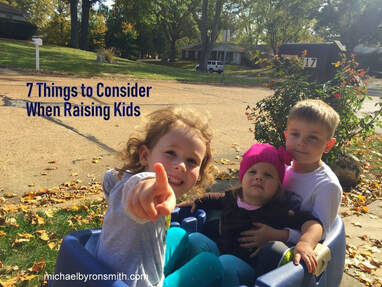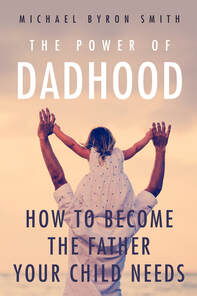
In my book, The Power of Dadhood, I bring up a question that you should ask yourself before you decide whether or not to help your child in any endeavor. It doesn’t matter if they are a toddler or an adult. The question is this, “Will your help make them stronger or weaker”? I ask this is because both are possible. One attains strength in the face of resistance. Helping too much at the wrong time will rob them of the resistance they need to overcome an obstacle and, therefore, rob them of attainable strength.
On the other hand, not helping enough can rob them of an opportunity to meet a resistance in the first place. The factor is often fear! Fears, unaddressed, can be fatal to success and happiness. Holding a child’s hand, either literally or figuratively, can be the help that will make them stronger by assisting them in conquering a particular fear. This help is accomplished with small, carefully managed, chunks of exposure.
As a child, I had a fear of people. This fear wasn’t actually of people, but the fear of not being accepted by people. I could have easily defeated my fear with exposure, but without exposure there would be no victory over this fear. Because I faced this fear alone, it took years to overcome. Help from a mentor would have made me stronger in this example, not weaker.
To those who grease the skids for kids, I say this. Would anyone be happy without some limitations? Of course, we don’t necessarily want limitations, and any worthwhile individual will work to remove them. But if we have nothing to challenge us, it is as if we were in a utopia. My dictionary defines ‘utopia’ as an ideal place or state. What is more ideal than having no limitations?
My answer to the above question is this - ‘having limitations’ is more ideal! Happiness is tough to define or even achieve. What can be done to work around the notion of happiness is to have a challenge or responsibility. Having a mission in life will give one focus. The best purposes in life are those that confront limitations. Defeating limitations is a pathway to self-respect if not happiness. Don’t take away the challenge of a limitation when your child can beat it on his or her terms.
Summary
Helping someone is good or bad, depending on when and how one carries it out. Limitations are useful when you can rally to defeat them. Parents are good-to-awesome when they can judge what their children need and let then find it themselves whenever possible. But parents also need to be there to catch a child in a fall and provide assistance to get them back on track. It takes a lot of thought to be a good parent. Having an idea of when helping a child will make them stronger or weaker is vital.















